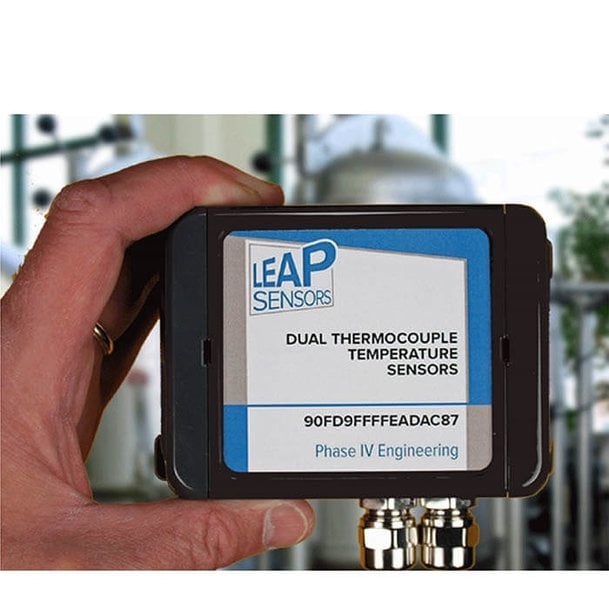WIKA USA Partner Phase IV Engineering Launches New Wireless Sensor System
Phase IV Engineering launches the next generation of its Leap Sensors® Wireless Sensor System for the Industrial Internet of Things.

Phase IV Engineering, a WIKA USA partner, launches its newly redesigned industrial IoT sensor system, Leap Sensors. It combines the advantages of a wireless IIoT system with the robust features industrial and enterprise clients require.
“Phase IV Engineering has been doing custom sensor design work for 25 years, and we saw an opportunity to integrate those cutting-edge design features into a system that meets the needs of Industry 4.0. It is easy to configure, install and update, making the leap to the IIoT simple and cost-effective,” says Phase IV Engineering’s CEO Scott Dalgleish.
The breakthrough modular design of Leap Sensors has many advantages, including:
- The ability to combine multiple types of sensors (including analog inputs) on one transceiver node. Option to interface with a client’s existing software (such as SCADA), or use Leap’s cloud-based software.
- A powerful onboard microprocessor that leverages edge computing so managing high-volume readings (vibration, for example) does not become a burden on storage software – and the humans who have to interpret it.
- AES-128 encryption of data transmissions.
- Initial proofs-of-concept are easy and cost-effective to execute.
Phase IV ensured the external design of the sensor transceiver nodes is just as robust, with a rugged polycarbonate enclosure rated to IP68, UL 94 V-0 (non-Ex rated) flammability rating, as well as an integrated internal antenna. At this time, Leap is not offering an intrinsically safe-rated enclosure. The enclosures can withstand the dust and vibration of an industrial environment, including wash-downs.
“Because of our streamlined design and installation process, our customers typically see an ROI within three months,” says Dalgleish. “A client who installed our motor sensor system detected a motor that was about to fail within the first two weeks after installation, turning what could have been a $200,000 loss--downtime, lost product, replacement expense-- into a manageable $3,500 scheduled repair.
www.wika.com

